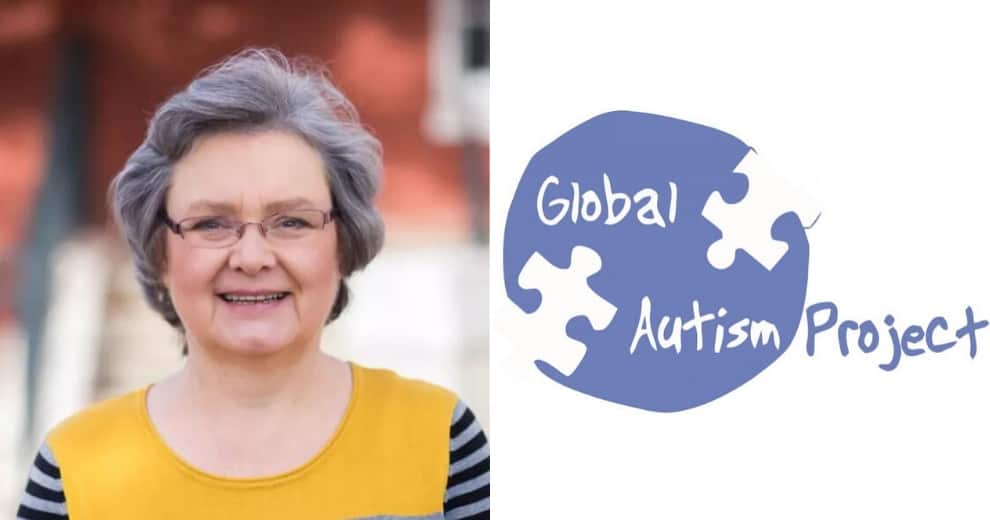A psychology professor at Mary Baldwin University (MBU) is headed to Ecuador this summer to bring much-needed services to children with autism. Louise Freeman, who is in her 20th year at MBU, will be traveling through the Global Autism Project, a nonprofit organization that trains staff to work with autistic children at centers around the world. The trip is Freeman’s latest endeavor in a career spent researching physiological psychology and neuroscience, teaching learning and behavior courses at the university, and more recently, working as a board certified behavior analyst.
A board certified behavior analyst develops individualized plans for behavior change using positive reinforcement. This method is often used by those working with autistic individuals to help teach self-care skills, verbal skills, and social skills. Around 2011, MBU alumni began reporting back that the certification was in high demand in the field. As a result, the Psychology Department partnered with the College of Education to offer the credential at Mary Baldwin.

At the time, Freeman was working in a church that had a number of special needs children. After Jenna Holt, also an MBU psychology professor, put the curriculum together, Freeman became interested in earning the certification herself. She completed the coursework and began the required 1,500 hours of supervised fieldwork during a sabbatical in 2017, and later passed the national test. In addition to her position at MBU, Freeman now practices as a behavior analyst for Compass Counseling Services.
Freeman is currently pursuing her doctoral level certification. She had been interested in taking another sabbatical, this time overseas to work in the field in countries that are in the process of establishing a certification program, when she came across the Global Autism Project. According to the organization’s website, 85% of people with autism live in developing countries where there are little to no services for the autisitc population. Freeman says that in some places, children with autism may not be educated at all. The nonprofit works to promote the acceptance and integration of individuals with autism worldwide by training communities in culturally relevant, sustainable practices through the use of volunteers — professionals working in the field of autism. The organization has centers all over the world, including India, Kenya, and Tanzania. Freeman applied to travel to Ecuador because she speaks some Spanish.
“I’m looking forward to the cross-cultural experience, as well as learning how behavior analysis can be done in a country where they don’t have the infrastructure that is present in the United States,” Freeman said.
Once Freeman was accepted to the program, she was tasked with raising $5,000. Part of these funds cover the cost of the trip, including housing and food, while the rest supports the local organization and the staff that works at the centers year-round.
“What a great opportunity it would be if we could run our own student program and offer that as a May Term course. That is my long-term hope.”
Dr. Louise Freeman, professor of psychology
Compass Counseling Services donated $1,000, and Freeman also received a grant of $1,000 from MBU’s Spencer Center for Civic and Global Engagement. According to Christina Harrison, who serves as director of the Spencer Center, the High Impact Engaged Education Fund that was given to Freeman supports faculty development of high-impact practices at MBU related to civic and global engagement.
“Dr. Freeman’s project offers students an opportunity to apply classroom learning in a community setting, collaborating with community members to enhance services for individuals with autism and their families,” said Harrison. “The project is an excellent example of community-engaged and cross-cultural learning that exposes students to new skills, insights, and personal and professional growth.”
At the end of June, Freeman will head to New York for a few days of orientation before traveling on to Guayaquil, Ecuador. During their week in the city, Freeman and her fellow volunteers will be focusing on a major project, which she says could be anything from helping to set up classrooms, developing early intervention programs, or training parents and teachers.
Freeman hopes that her own experiences with the Global Autism Project will be beneficial to MBU students in the future.
“When I first saw this organization and learned they had trips for students, I immediately thought of our May Term,” said Freeman. “What a great opportunity it would be if we could run our own student program and offer that as a May Term course. That is my long-term hope.”
If this year’s trip goes well, Freeman will attend one of the organization’s leadership training conferences next year, with a goal of offering a May Term trip to one of their centers in 2022.